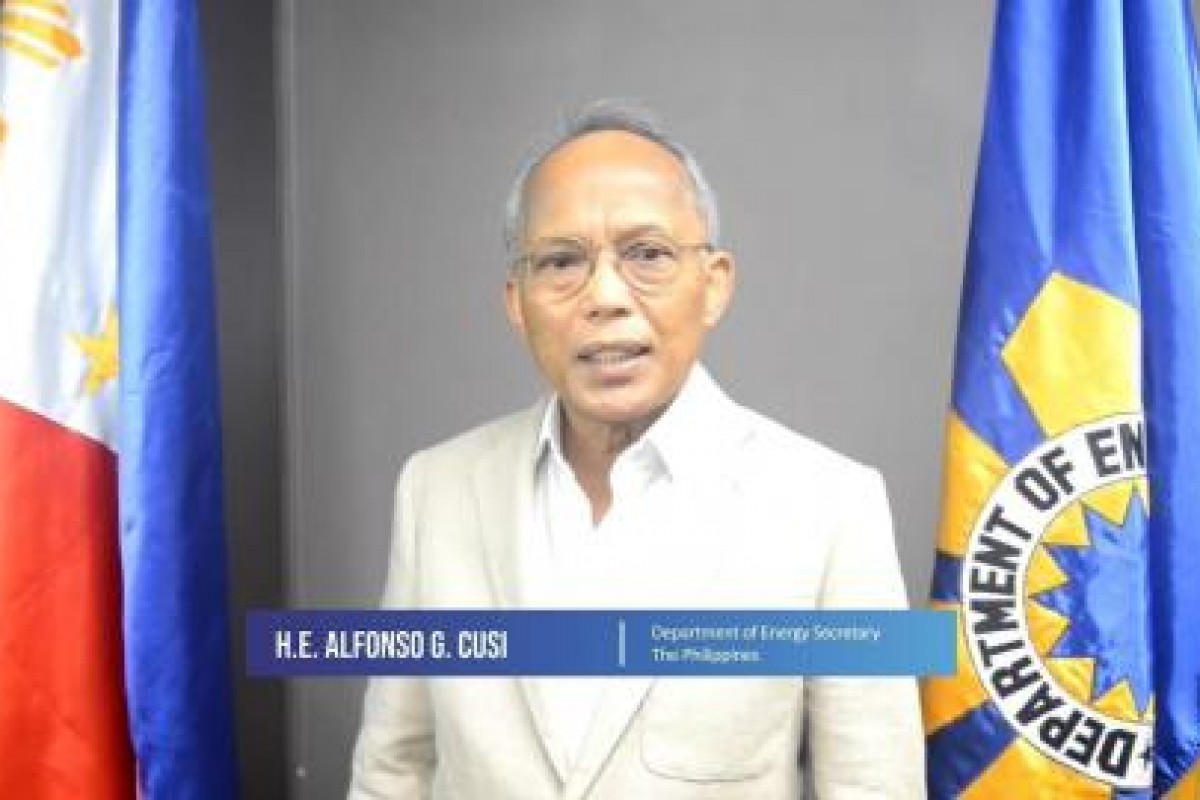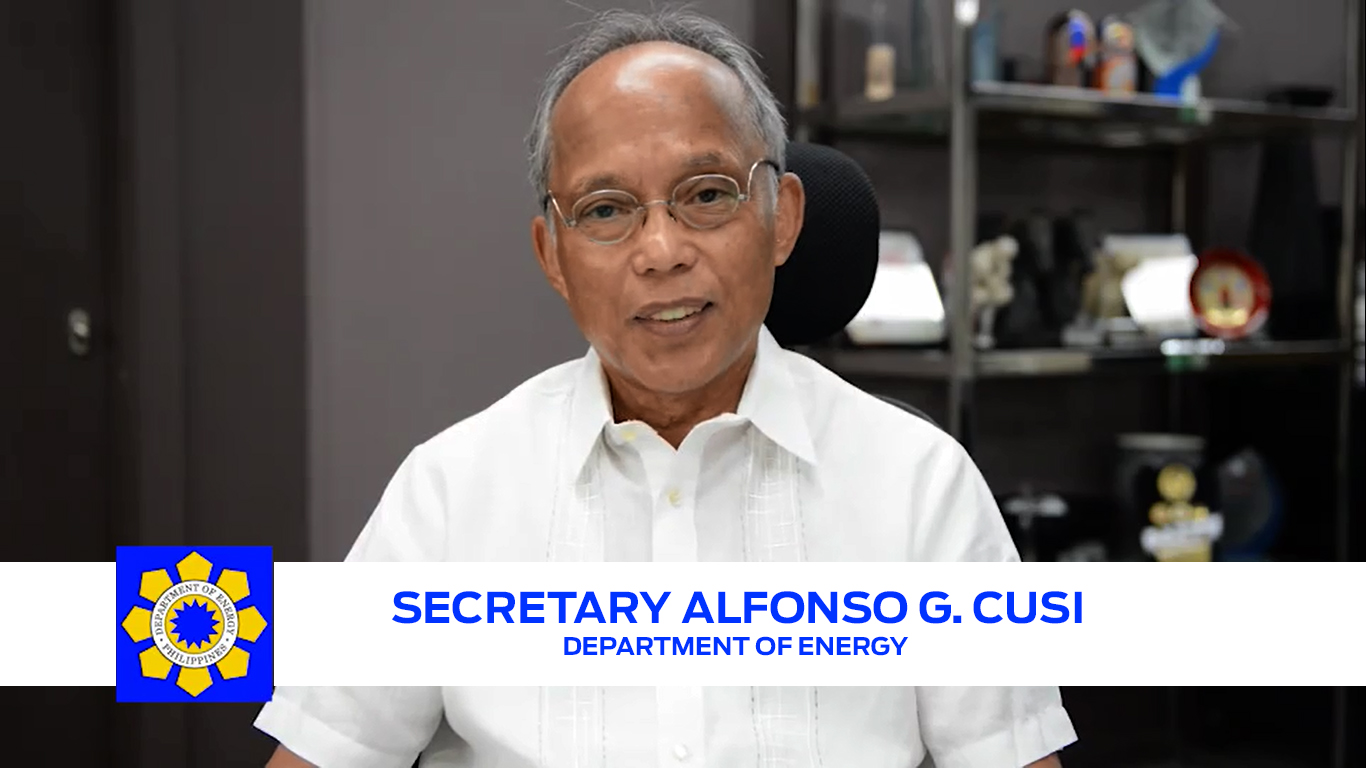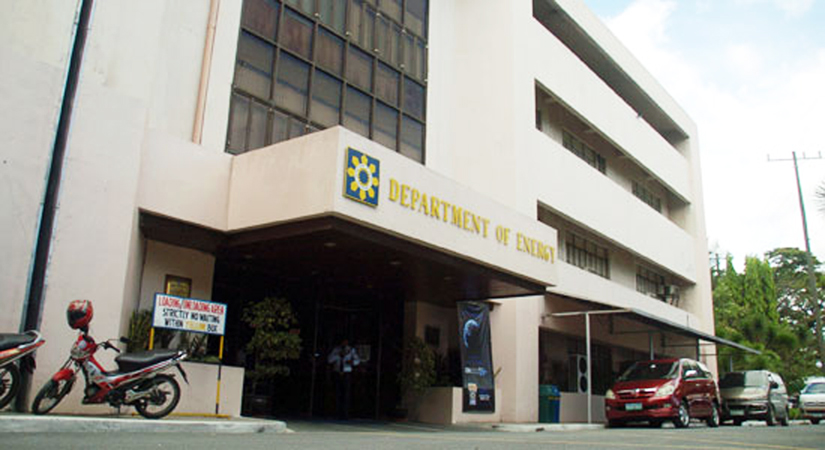TAGUIG CITY -- Energy Chief Alfonso G. Cusi, during the Future Energy Asia 2021 Exhibition and Conference held on 25 August 2021, highlighted the Department’s energy transition policies and efforts in line with the country’s shift to a low-carbon sustainable energy future.
Endorsed by the Ministry of Energy of Thailand and co-hosted by the Electricity Generating Authority of Thailand (EGAT) and the Petroleum Authority of Thailand (PTT), Future Energy Asia 2021 Exhibition and Conference highlights the Association of Southeast Asian Nations or ASEAN’s energy transition and transformation initiatives. The event advances ASEAN towards a secure, affordable, sustainable, and low-carbon energy transition amidst COVID-19 resilience and recovery. Specifically, the event drives the region’s dialogue, knowledge sharing, innovations and project developments around the liquified natural gas (LNG), renewables, power sectors.
Secretary Cusi made reference to the Clean Energy Scenario (CES) under the 2018-2040 Philippine Energy Plan (PEP), which builds on existing policies and targets set in our National Renewable Energy Program (NREP) and considers the ASEAN and the Asia-Pacific Economic Cooperation (APEC) targets on energy efficiency and renewable energy (RE), together with our mandated biofuels blending percentages.
The country’s energy transition as envisioned under the CES would be pursued through (1) the development of RE programs and projects, which aim to install more than 45,000 megawatts (MW) in additional capacity; (2) hitting the five percent target on the implementation of energy efficiency and conservation (EE&C) measures across all sectors of the Philippine economy; (3) expanding the use of natural gas from power generation to industrial and commercial sectors.; and (4) the provision of greater space for new and highly-efficient emerging energy technologies. In addition, the assessment and development of energy efficiency indicators, as well as the conduct of vulnerability assessments to strengthen the resiliency of all our energy facilities have been likewise programmed into the CES.
In addition, Secretary Cusi also reiterated the Philippine energy sector’s call for climate justice, “I have said this before – our country is not a significant instigator of climate change. Yet here we are, a victim of its worsening wrath. The severity of the adverse effects of climate change in the Philippines become more pronounced with each passing year. In fact, in the fourth quarter of 2020 alone, the energy sector bore the brunt of extreme weather events, with some devastated areas still undergoing restoration to date.”
Also, the Secretary called for support and continuance of such activities like the Future Energy Asia 2021 Exhibition and Conference which serve as avenues for the energy stakeholders to learn from one another and draw strength from each other’s experiences on energy transition. (DOE)





